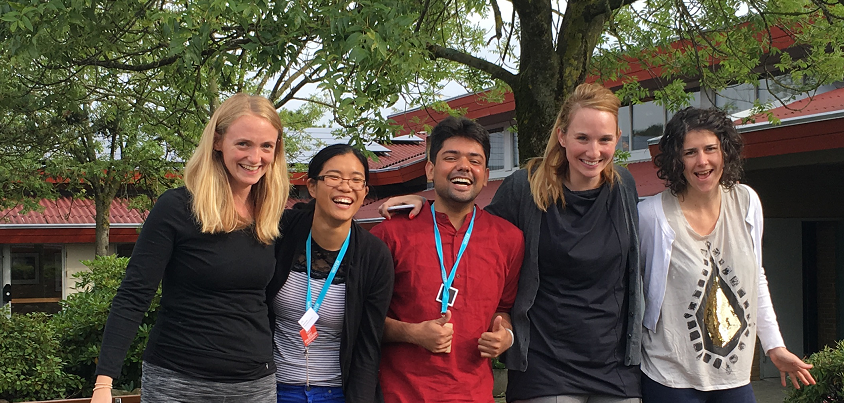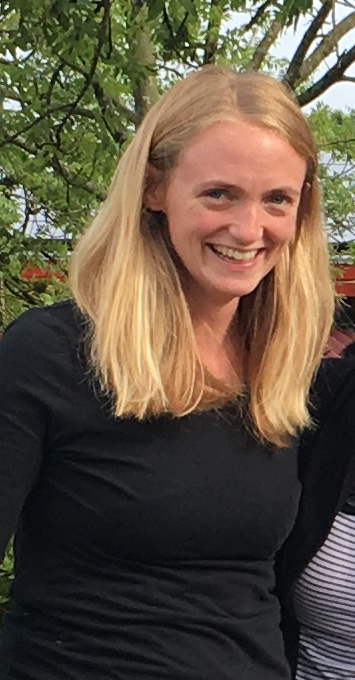WEF's Jessica Rozek blogs about participating in the first UNLEASH Innovation Lab in Denmark.
For ten days in August I was fortunate to participate in the first UNLEASH Innovation Lab in Denmark. UNLEASH brought together 1000 talents from 129 countries to work on solving seven of the seventeen Sustainable Development Goals (SDGs). I participated in the Water theme, along with approximately 120 others, including ten WEF members.
Within the water theme, teams were formed based on issues and insights which were most relevant to their skills and interests. Teams then had three and a half days to come up with a problem and solution to pitch to judges at the end of the program.
As we all know, solving water problems is not always hugely profitable or easy to talk about. My team framed their problem around the small Indian city that our teammate Himanshu grew up in. We were joking about what we would do if someone stole the idea and Himanshu’s response was “that would be wonderful, all I want is for the problem to be solved.” Many of us work in water not to become billionaires, but to improve the global condition in a sustainable way, and hopefully support ourselves in the process.
Water has been an issue since the beginning of humanity and water issues are hard. SDGs such as urban sustainability and sustainable production and consumption are problems that we recently identified and are constantly evolving. Compared to these SDGs, while not impossible, it’s difficult to frame distinctly new and sexy problems around water; let’s face it, creating a new recycled clothing line is a more appealing dinner conversation than open defecation. The judges of the final Dragons Den, where the top two teams from each SDG theme presented their pitch, were investors. They were people who want to put their money into projects that would yield a high return and were not impressed with the Water solutions. This was in contrast to the discussions and ideas we had been sharing the previous eight days, one where we wanted to address those left behind while not disrupting progress in any other SDGs.
It was an incredible ten days. I met amazing people and worked on solutions to one of, if not the most difficult global problem, while having a great time in the process. While my team didn’t advance to the final round, we framed a real problem that the experts and peers we talked to could connect with, and came up with a solution that could have a real impact in Himanshu’s community and a model that could be scaled. When Fidan Karimova, representing WEF and WE&RF, and her team OTWOH won Most Visionary Solution, I felt such happiness and pride in my fellow WEF-ers and the entire Water track, it was as if I had won myself. But then, in the end, when it comes to real solutions for reaching the SDGs, we are all winners.
Hear more about the WEF Talents projects at WEFTEC in the Innovation Pavilion at 11am and 1 pm on Wednesday, October 4.



 Jessica Rozek works as the Operations Program Manager for the Water Environment Federation (WEF). Previously, she was a member of WEF’s marketing and production team. In 2017, she represented WEF at the UNLEASH Global Innovation Lab to help advance the United Nations’ Sustainable Development Goals. She also is an active member of the WEF Eco team. Rozek also spent 4 years as deputy director of Opening Possibilities Asia to improve access to clean water and water education in schools in Mandalay, Myanmar.
Jessica Rozek works as the Operations Program Manager for the Water Environment Federation (WEF). Previously, she was a member of WEF’s marketing and production team. In 2017, she represented WEF at the UNLEASH Global Innovation Lab to help advance the United Nations’ Sustainable Development Goals. She also is an active member of the WEF Eco team. Rozek also spent 4 years as deputy director of Opening Possibilities Asia to improve access to clean water and water education in schools in Mandalay, Myanmar.